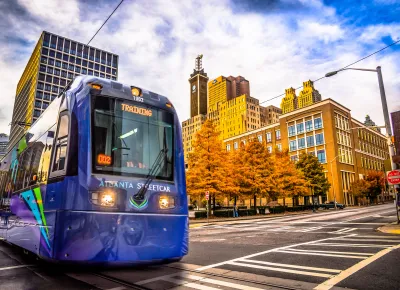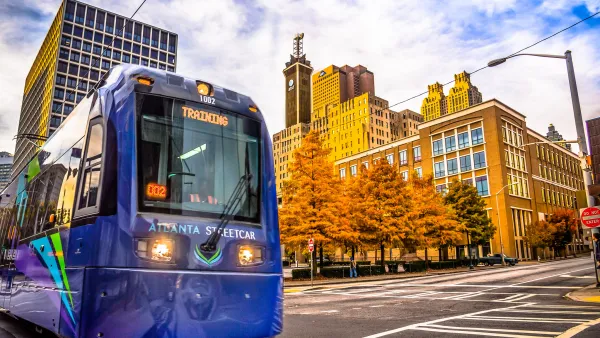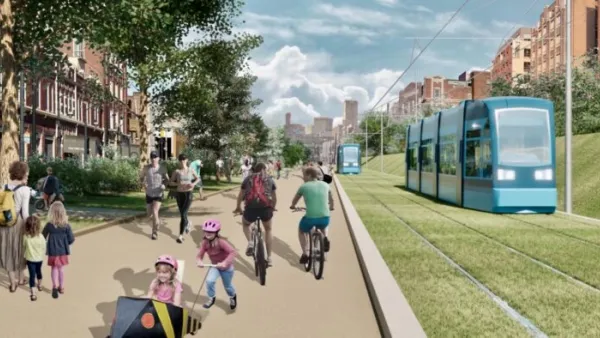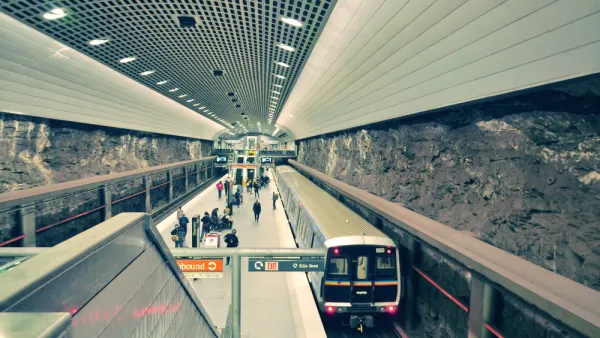After a stumbling start getting off the ground, proponents of Atlanta's new streetcar see hope in its future while others question further investment.

Atlanta's new streetcar system has had a rough go of it early on. Critics have called the 2.7-mile system a "colossal waste of taxpayer dollars" after it failed to reach ridership goals, with others complaining that the homeless "had turned the streetcars into sleek-looking shelters." Now as Atlanta begins charging fares for riders, some believe that ridership is set to take a nose dive. Alan Blinder reports in the New York Times that the mayor and other supporters of the streetcar are asking for patience as the system works out its kinks, but they believe the investment is worth it.
Streetcar boosters, who lament what they perceive as prematurely hostile coverage by news outlets and say they are encouraged by the first year’s ridership statistics, acknowledge that the existing route is insufficient. But they contend that proposed expansions in future decades would help the system appeal to more people than the visitors whose hotels are often near the current line.
The steady opposition to the streetcar has some backers worried that federal funding for future expansion could be in jeopardy, but critics think the money could be spent better elsewhere. Blinder quotes one of the leading opponents: "Let’s view this as a lesson, and let’s consider better options that don’t involve taking a lane away from the downtown roads."
FULL STORY: Atlanta Begins Charging for a Streetcar Named Undesirable by Some

Analysis: Cybertruck Fatality Rate Far Exceeds That of Ford Pinto
The Tesla Cybertruck was recalled seven times last year.

National Parks Layoffs Will Cause Communities to Lose Billions
Thousands of essential park workers were laid off this week, just before the busy spring break season.

Retro-silient?: America’s First “Eco-burb,” The Woodlands Turns 50
A master-planned community north of Houston offers lessons on green infrastructure and resilient design, but falls short of its founder’s lofty affordability and walkability goals.

Test News Post 1
This is a summary

Analysis: Cybertruck Fatality Rate Far Exceeds That of Ford Pinto
The Tesla Cybertruck was recalled seven times last year.

Test News Headline 46
Test for the image on the front page.
Urban Design for Planners 1: Software Tools
This six-course series explores essential urban design concepts using open source software and equips planners with the tools they need to participate fully in the urban design process.
Planning for Universal Design
Learn the tools for implementing Universal Design in planning regulations.
EMC Planning Group, Inc.
Planetizen
Planetizen
Mpact (formerly Rail~Volution)
Great Falls Development Authority, Inc.
HUDs Office of Policy Development and Research
NYU Wagner Graduate School of Public Service




























